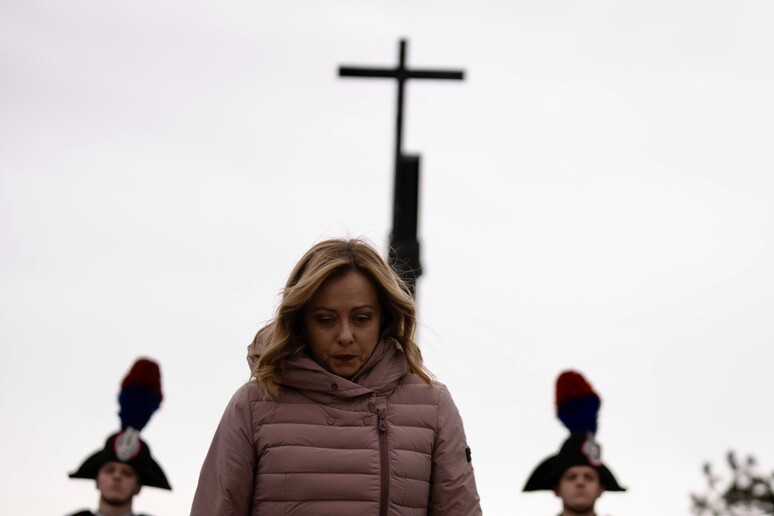Premier Giorgia Meloni on Monday
marked Italy's Foibe Remembrance Day saying that the homage to
the victims of the Foibe massacres, the mass killings and
deportations by Tito's Yugoslav Partisans of Italians living in
the area that stretches from the Trieste zone in Italy's Friuli
Venezia Giulia region across the Istrian peninsula to Dalmatia
in Croatia during and immediately after WWII, was necessary for
truth and justice.
Meloni posted a video of her visit last year to the Foiba of
Basovizza, writing that, "on the Day of Memory, we pay homage to
the victims of the Foibe and to all those who endured the
tragedy of the Julian-Dalmatian exodus, a painful page in our
history forgotten for too long".
"Remembering is a duty towards truth and justice, to honour
those who suffered and to transmit this memory to the new
generations.
"Italy doesn't forget", wrote the premier.
Most of the Foibe were natural pit-like karst sinkholes
typically found in Friuli Venezia Giulia and the Slovenian part
of Istria into which victims were thrown, sometimes alive.
The Basovizza Foiba was a mineshaft.
It is estimated that as many as 15,000 Italians largely, but not
always, identified with Fascism were tortured or killed by
Yugoslav communists who occupied the Istrian peninsula during
the last two years of the war.
Many of the victims were thrown into the narrow mountain gorges
during anti-Fascist uprisings in the area and the exact number
of victims of these atrocities is unknown, in part because
Tito's forces destroyed local population records to cover up
their crimes.
Many Italians were forced to flee their homes because of the
massacres.
Italy established Foibe Remembrance Day only in 2004, as the
tragedy had been swept under the carpet by anti-Fascists in the
postwar years.
ALL RIGHTS RESERVED © Copyright ANSA











